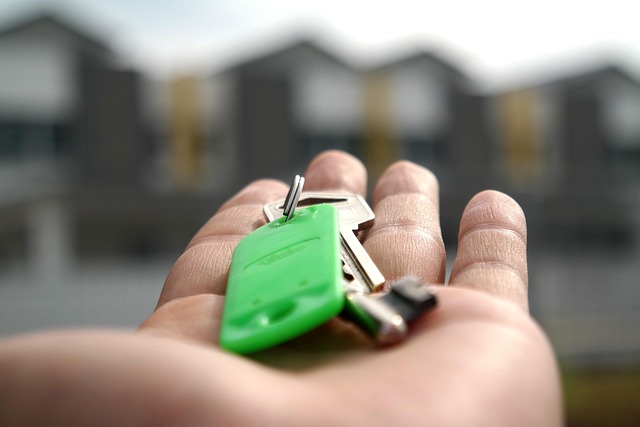Residential Retreats for Families: Healing Together in Dover, NH
Residential Treatment Centers in Dover, New Hampshire, offer specialized mental health retreats for…….
Over 15% US adults have used prescription painkillers not prescribed to them.
In the heart of New Hampshire, Dover stands as a beacon of hope for individuals seeking transformative solutions through residential treatment centers (RTCs). These specialized facilities offer intensive care and therapeutic support for those grappling with various challenges, from mental health disorders to substance use issues. This article delves into the intricate world of RTCs in Dover, exploring their purpose, evolution, global reach, and the multifaceted impact they have on individuals, families, and communities. By examining these centers’ core functions, historical development, and future prospects, we aim to provide a comprehensive understanding of their role in modern healthcare.
Residential Treatment Centers (RTCs) in Dover, NH, are specialized facilities designed to provide intensive, long-term treatment for individuals with severe mental health disorders or addiction issues. These centers offer a structured, supportive environment where residents engage in therapeutic activities, counseling sessions, group therapy, and personal development programs. The primary goal is to help individuals regain control of their lives, develop coping strategies, and achieve sustained recovery.
Key components of RTCs include:
The concept of residential treatment has evolved over centuries, reflecting societal changes and advancements in mental health understanding. Historically, asylums and institutions provided long-term care for the mentally ill, often with limited therapeutic interventions. However, the deinstitutionalization movement in the mid-20th century shifted focus towards community-based care, including RTCs.
In Dover, New Hampshire, the establishment of RTCs gained momentum in response to growing recognition of the unique challenges faced by individuals with severe mental health disorders and addiction. The early 1980s saw the development of specialized centers offering comprehensive treatment models, marking a significant turning point in the field. Over time, these centers have evolved to incorporate evidence-based practices, technology, and a person-centered approach, ensuring more effective and holistic care.
Residential Treatment Centers (RTCs) in Dover, NH, have gained international recognition for their innovative approaches and successful outcomes. The global impact of these centers is evident through several trends:
Increased Demand: Rising rates of mental health disorders and substance use issues worldwide drive the need for intensive treatment facilities. This demand has led to the expansion of RTCs in various countries, including the US, UK, Australia, and Japan.
Evidence-Based Practices: There is a growing emphasis on evidence-based therapeutic models, such as cognitive-behavioral therapy (CBT), dialectical behavior therapy (DBT), and motivational interviewing (MI). These approaches have been integrated into RTC programs worldwide, demonstrating improved treatment outcomes.
Technology Integration: The adoption of technology in RTCs has revolutionized care delivery. Telehealth services, mobile apps for monitoring progress, and digital platforms for peer support are becoming common, especially during the COVID-19 pandemic, ensuring continued access to treatment.
Cultural Sensitivity: Recognizing the importance of cultural context, many RTCs now offer culturally tailored programs to accommodate diverse populations. This approach ensures more inclusive and effective treatment, catering to individuals from various ethnic, racial, and cultural backgrounds.
The economic landscape surrounding Residential Treatment Centers (RTCs) in Dover is complex and multifaceted. These centers contribute significantly to the local and national economy while presenting unique challenges:
Technology has revolutionized Residential Treatment Centers (RTCs) in Dover, NH, enhancing patient care, staff efficiency, and access to services:
Telehealth Services: The integration of telehealth allows residents to participate in therapy sessions remotely, especially beneficial for individuals with limited mobility or those living in rural areas. This technology ensures continuity of care, improves client retention, and expands access to specialized treatments.
Mobile Health Apps: Customized mobile apps enable residents to track their progress, set goals, and access educational resources. These tools promote self-management, encourage engagement, and facilitate communication between clients and therapists.
Digital Peer Support Networks: Online platforms foster peer support groups, allowing individuals in recovery to connect, share experiences, and offer encouragement. This digital community extends the therapeutic environment beyond the physical walls of the RTC.
Data Analytics for Treatment Planning: Advanced analytics tools help staff identify patterns, predict outcomes, and tailor treatment plans. By analyzing resident data, centers can optimize programs, improve success rates, and enhance resource allocation.
The operation of Residential Treatment Centers (RTCs) in Dover, NH, is subject to stringent policies and regulations aimed at ensuring patient safety, ethical practices, and quality care:
Licensing and Certification: State authorities regulate RTCs through licensing requirements, ensuring facilities meet specific standards for staffing, facility maintenance, and therapeutic services. Certification from recognized organizations further validates the quality of care.
Ethical Guidelines: Professional associations establish ethical frameworks governing the practice of mental health professionals within RTCs. These guidelines address confidentiality, informed consent, patient rights, and professional conduct.
Privacy Laws: The Health Insurance Portability and Accountability Act (HIPAA) in the US protects resident privacy, dictating how medical records and personal information can be used and disclosed. Strict adherence to HIPAA ensures confidential handling of sensitive data.
Medicaid and Medicare Regulations: Public funding for RTC services is subject to specific rules and eligibility criteria. These regulations ensure equitable access and define the scope of covered services.
Despite their proven effectiveness, Residential Treatment Centers (RTCs) in Dover face several challenges and criticisms:
Stigma and Misunderstanding: One of the primary obstacles is societal stigma surrounding mental health issues and addiction. This stigma often deters individuals from seeking treatment, even when it’s desperately needed. Educating communities about RTCs’ benefits and dispelling myths are essential steps to encourage help-seeking behaviors.
Access and Affordability: Limited availability of RTC beds and high treatment costs can create barriers for individuals in need. Addressing these challenges requires collaboration between insurance providers, government agencies, and non-profit organizations to expand coverage and accessibility.
Staffing Shortages: The demand for qualified and trained staff often exceeds supply, leading to increased workloads and potential burnout. Attracting and retaining skilled professionals require competitive salaries, comprehensive training programs, and supportive work environments.
Evidence-Based Practice Implementation: While evidence-based therapeutic models are essential, their successful implementation can be challenging due to resource constraints, staff resistance, or a lack of specialized training. Ongoing education and support for staff are crucial in ensuring the effectiveness of these practices.
To overcome the identified challenges, the following strategies can be implemented:
Community Outreach and Education: Developing community partnerships with schools, workplaces, and faith groups to raise awareness about RTCs and reduce stigma. Educational programs targeting youth and at-risk populations can foster early intervention and prevention.
Insurance Coverage Expansion: Advocating for expanded insurance coverage for RTC services, including Medicaid and private insurers, will improve accessibility for a broader range of individuals.
Staff Training and Retention: Investing in comprehensive training programs, offering competitive salaries and benefits, and fostering a supportive work environment can enhance staff retention and attract qualified professionals.
Technology Integration Support: Providing financial assistance and technical support to RTCs for technology adoption ensures effective implementation and improves care delivery.
The Dover Residential Treatment Center (DRTC) has consistently demonstrated exceptional outcomes, earning national recognition for its comprehensive approach. DRTC’s success can be attributed to several factors:
The New HampshireRTC, a cutting-edge facility in Dover, has taken the lead in technology integration, transforming treatment delivery. Their innovative approach includes:
The Residential Treatment Center (RTC) landscape in Dover, NH, is poised for exciting growth and evolution:
Personalized Medicine: The future of RTCs will likely involve tailored treatments based on individual genetics, neurobiology, and psychological profiles. Personalized medicine ensures more effective interventions and improved outcomes.
Digital Health Revolution: Technology integration will continue to shape RTCs, with artificial intelligence (AI) and machine learning enhancing patient monitoring, predictive analytics, and personalized treatment recommendations.
Community-Based Care: There is a growing emphasis on integrating RTC services into community settings, promoting continuity of care. This approach includes peer support groups, community therapy sessions, and reintegration programs tailored to local needs.
Global Collaboration: International collaboration among RTCs can lead to knowledge sharing, best practice dissemination, and global standards for treatment excellence.
Residential Treatment Centers (RTCs) in Dover, New Hampshire, stand as beacons of hope, offering transformative care and support to individuals facing severe mental health challenges and addiction. This article has provided a comprehensive exploration of RTCs’ historical context, global impact, economic considerations, technological advancements, policies, and the challenges they face. By highlighting successful case studies and projecting future trends, we have illuminated the path forward for these centers’ continued growth and development.
As society continues to evolve its understanding of mental health and addiction, RTCs in Dover will play a pivotal role in shaping more inclusive, effective, and accessible care systems. Through ongoing innovation, collaboration, and advocacy, these centers can ensure that individuals from all walks of life receive the specialized support they need to lead fulfilling lives.
Q: What types of mental health disorders do RTCs in Dover treat?
A: Residential Treatment Centers in Dover offer specialized care for various mental health disorders, including depression, anxiety disorders, post-traumatic stress disorder (PTSD), bipolar disorder, schizophrenia, and personality disorders. These centers also cater to individuals with co-occurring disorders, such as addiction and mental illness.
Q: How long does treatment typically last at an RTC?
A: Treatment durations vary depending on individual needs and progress. Typically, residential stays can range from 30 days to several months, with ongoing support and aftercare planning ensuring sustained recovery.
Q: Are RTCs covered by insurance?
A: Many insurance plans cover a portion of RTC services, but coverage varies. Medicaid, Medicare, and private insurers often have specific criteria for eligibility and reimbursement. It’s essential to verify insurance coverage before admission.
Q: What support is available for family members of RTC residents?
A: Family involvement is encouraged at many RTCs. Support groups, family therapy sessions, and educational resources help families understand the treatment process and provide ongoing support. Some centers also offer counseling services specifically tailored for family members.
Q: How do I know if an RTC is right for me or a loved one?
A: If you or a loved one is struggling with a severe mental health disorder or addiction, seeking professional help is crucial. Consider the severity of symptoms, previous treatment attempts, and personal preferences when evaluating RTCs. Consulting with healthcare providers and therapists can provide valuable insights into the best course of action.

Residential Treatment Centers in Dover, New Hampshire, offer specialized mental health retreats for…….

Residential Treatment Centers (RTCs) in Dover, New Hampshire, offer comprehensive solutions for teen…….

Residential Treatment Centers Dover New Hampshire provide an immersive, luxurious, and supportive en…….